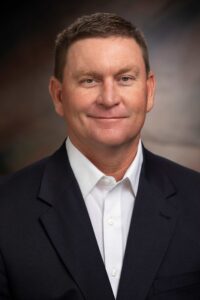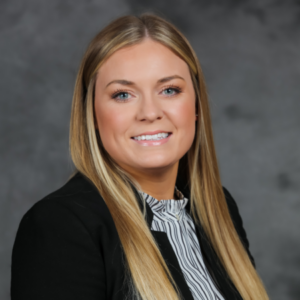ARLINGTON, TX – Agriculture Secretary Brooke Rollins touted the Trump administration’s milk action plan to support American dairy farmers today at NMPF’s annual meeting.
“I want to be very clear. We will never stop fighting for those of you in the dairy industry and across rural America we have reached that golden age for our producers,” said Rollins, a Texas native who keynoted the Joint Annual Meeting hosted by NMPF, the United Dairy Board and the United Dairy Industry Association. “Dairy farmers have delivered for America for 250 years, and now it’s time for us to deliver for you.”
Rollins spoke to roughly 750 farmers, cooperative leaders and industry professionals gathered to discuss industry topics ranging from an economic outlook to dairy labor challenges. NMPF, the largest U.S. dairy farmer group, is holding a series of discussions on policy issues throughout the meeting, ranging from the need to pass the Whole Milk for Healthy Kids Act to creating lasting labor solutions for U.S. dairy farmers.
In her remarks, Rollins outlined USDA’s dairy priorities, outlining the administration’s four-point approach to support the industry, including:
- Incentivizing dairy consumption through changes to the Dietary Guidelines for Americans, expected in December or early January;
- Working to drive down input costs;
- Facilitating investments in American milk processing; and
- Expanding markets to help milk producers prosper.
Rollins also noted the importance of farm-labor issues, pledging to seek federal changes to rules and regulations in coordination with the departments of Labor and Homeland Security while noting that broader changes will require congressional action. “We are acutely aware of the unique labor needs of the dairy industry,” she said.
Rollins became the 33rd U.S. Secretary of Agriculture earlier this year after serving as the Founder, President, and Chief Executive Officer of the America First Policy Institute. During President Trump’s first administration, she was the Director of the Domestic Policy Council and Assistant to the President for Strategic Initiatives in the White House. She also previously served as Director of the Office of American Innovation. In these roles, she developed and managed the domestic policy agenda of the Trump administration.
Rollins’s remarks kicked off a busy day at the conference, with remarks from immediate past NMPF Chairman Randy Mooney, newly elected NMPF Chairman Brian Rexing, and NMPF President & CEO Gregg Doud as well as a luncheon featuring awards from the National Dairy Farmers Assuring Responsible Management (FARM) Program and NMPF communications.
A reception sampling top-performing cheeses from NMPF’s annual cheese contest is this evening.







